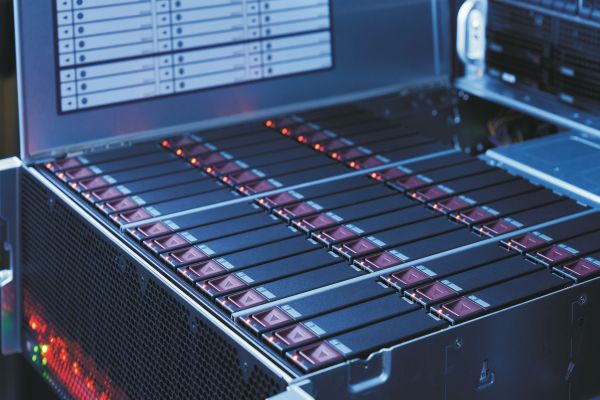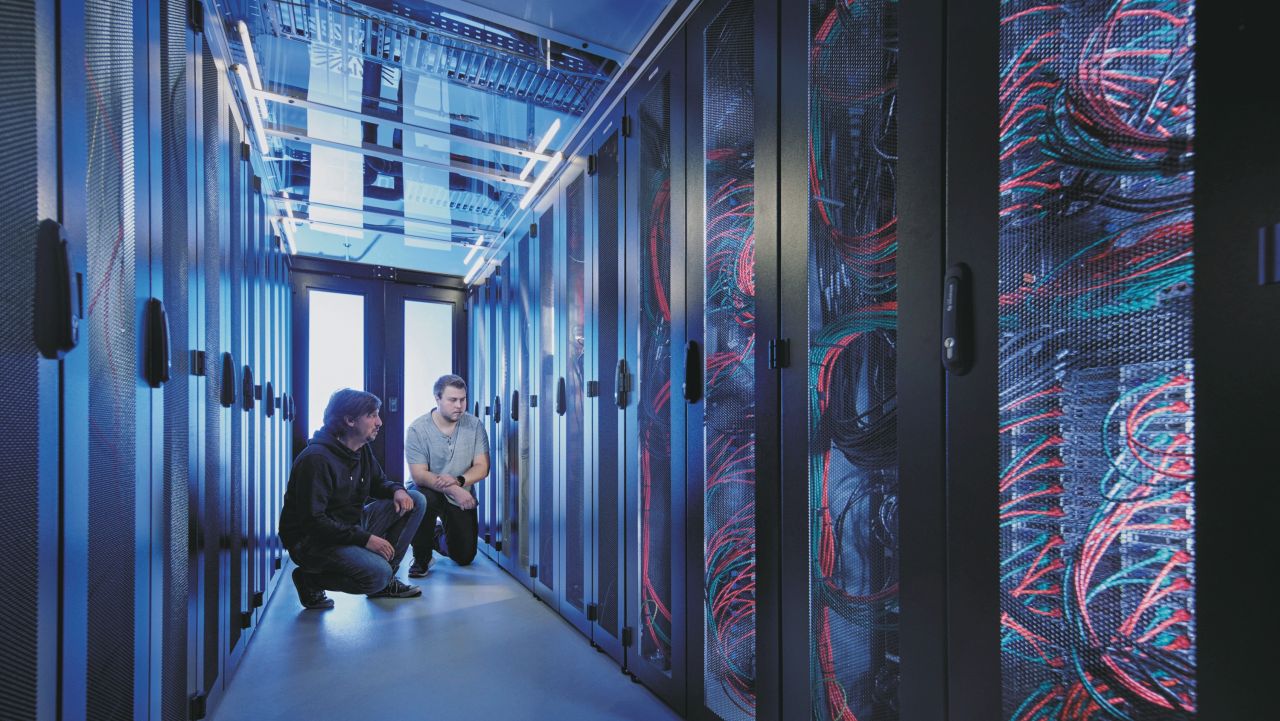A new supercomputer for materials research has now started operation at Karlsruhe Institute of Technology (KIT): The computer that is worth 1.2 million euros enables researchers to simulate the structure of future materials and study their properties even before they exist in reality. This helps them develop new materials that may be applied in the medical sector or in energy research. With their new computer models, the researchers succeeded in improving the membrane of Covid rapid test kits, for instance.
“Simulation calculations produce gigantic amounts of data on e.g. the behavior of materials under special conditions. By means of modern data science applications, machine learning, and artificial intelligence, we can extract knowledge on their properties and thus accelerate the development of new materials,” says Britta Nestler, Professor for Microstructure Simulations at KIT’s Institute for Applied Materials.
Computing Power Corresponds to that of 10,000 Laptops
The 1.2-million-euro supercomputer is located at the Material Research Center for Energy Systems (MZE) on KIT’s Campus South. Half of its costs were financed from the Structure and Innovation Fund of the State of Baden-Württemberg. The system’s computing power corresponds to that of 10,000 laptops. “This computing power allows for an even faster development of new simulation methods,” Nestler says. “This includes multi-physics methods for microstructure simulation, for data analysis to predict material/property relationships, and for the further development of material simulation software in Karlsruhe.”

(Photo: Amadeus Bramsiepe, KIT)
Improved Transport of Liquid in Covid Rapid Test Kits
The spectrum of technical applications extends from medicine to energy research to geosciences. For example, KIT researchers have optimized the transport of liquid in diagnostic devices, including Covid rapid test kits, by improving the incorporated membrane structure. The simulation data may also be used for the design of geothermal plants, energy storage systems, CO2 storage systems, or efficient groundwater cleaning plants.
In close partnership with society, KIT develops solutions for urgent challenges – from climate change, energy transition and sustainable use of natural resources to artificial intelligence, sovereignty and an aging population. As The University in the Helmholtz Association, KIT unites scientific excellence from insight to application-driven research under one roof – and is thus in a unique position to drive this transformation. As a University of Excellence, KIT offers its more than 10,000 employees and 22,800 students outstanding opportunities to shape a sustainable and resilient future. KIT – Science for Impact.

